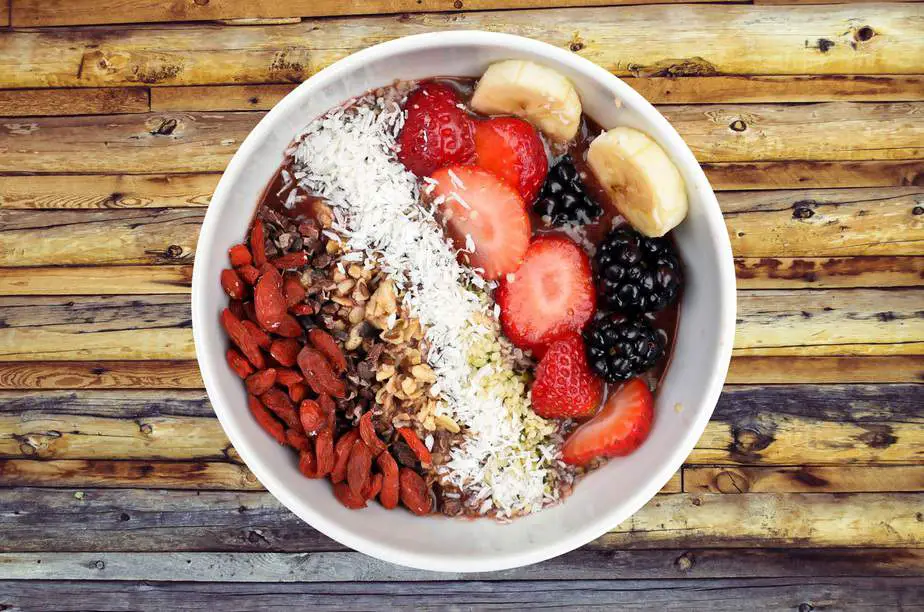Athletes often say that the hardest part of their day is not the time spent training, but rather the rest of the day where they need to adhere to a strict diet and resist their cravings. Food is an important part of one’s performance in a sport because it affects how good or bad one feels during the exercise. Scuba diving is no exception, and there are certain foods you should eat and some you shouldn’t eat both before and after a dive.
What you eat before a dive will give you the energy and strength to maximize your scuba diving experience. You should strive to eat nutritious foods so that your body can get fueled by the nutrients and you can make the most of your time underwater. On the other hand, there are certain foods you should not eat before scuba diving because it can cause discomfort or fail to provide you with enough energy, leading to a bad diving experience.
A general guideline to follow is: the day before the dive and even leading up to it, drink plenty of water to hydrate your body. A couple of hours before the dive, eat a small meal consisting of grains, vegetables, and nuts. The healthy carbohydrates and fats found in these foods will give you extra energy while diving. Avoid spicy and oily foods, and avoid drinking anything except water (especially alcoholic beverages). All of this will help you get the most of your dive.
What you should eat before scuba diving
Water
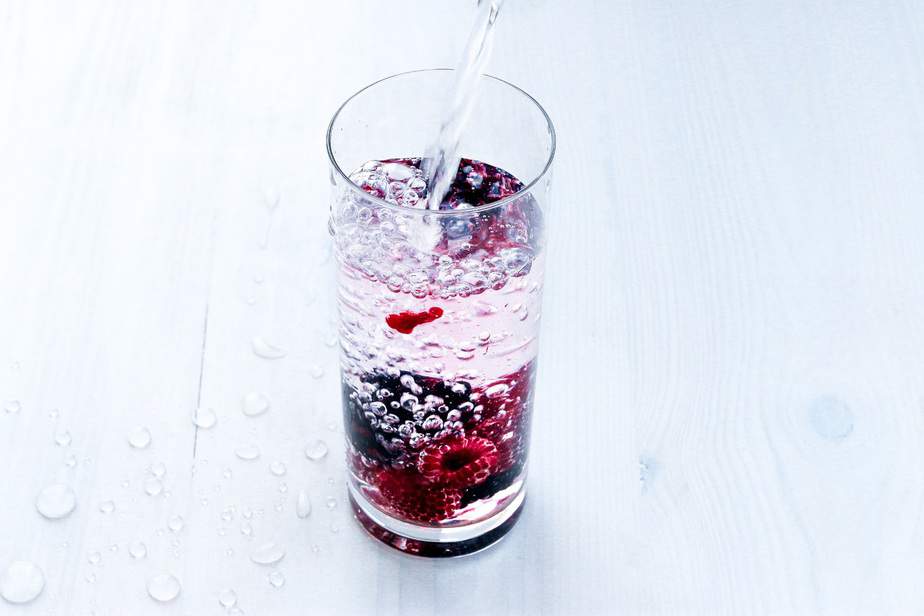
This one is a no-brainer but you should always be drinking plenty of water. The answer to many of life’s problems is just to drink more water. If you’re feeling unwell, drink more water. If you’re feeling well, keep drinking water to remain well. It’s never a bad idea to drink water.
On your scuba diving trip, it’s very easy to become dehydrated. You’ll get dehydrated on the flight over, from the tropical weather making you sweat, and from moving around in the sun. These will all cause you to lose fluids that need to be replenished. While it’s possible to eat or drink during a dive, most people aren’t prepared to do it. Dehydration will also cause fatigue, cramps, and make you more susceptible to decompression sickness.
A mistake that some divers make is to drink less water leading up to a dive because they find that they badly want to pee during a dive. I mean, peeing in your wetsuit, that sounds like it’d be unsanitary and something that only weirdos would do, right?
Let’s be honest, all of us pee in our wetsuits. The cold water causes our body to increase urine production; this is called immersion diuresis. In fact, peeing in our wetsuit is one of the main reasons why we should be drinking more water.
Because of immersion diuresis, our body is using up precious fluids to make urine, dehydrating us further. If you were dehydrated to start with, you will start to feel like you’re turning into a dried out mummy with how little fluids are in your body.
Furthermore, on the issues of cleanliness and embarrassment, the pee will wash out of the suit during the dive and it’s already assumed everybody pees in their wetsuit, so it’s not a good reason to dehydrate yourself. Plus, think about the divers who dive with multiple tanks and spend hours underwater; do you really think they’re just holding it in?
In a similar vein, you should be wary of drinking coffee too close to the dive. Coffee is a diuretic, meaning that it will also ramp up urine production and cause you to dehydrate yourself. We recommend not drinking any coffee the day of the dive.
Lastly, as for how much water you should be drinking for scuba diving, the recommendation is that you should begin hydrating yourself 24 hours before the dive. A couple of hours before the dive, aim to drink at least 17 oz. of water.
Healthy carbs and fats
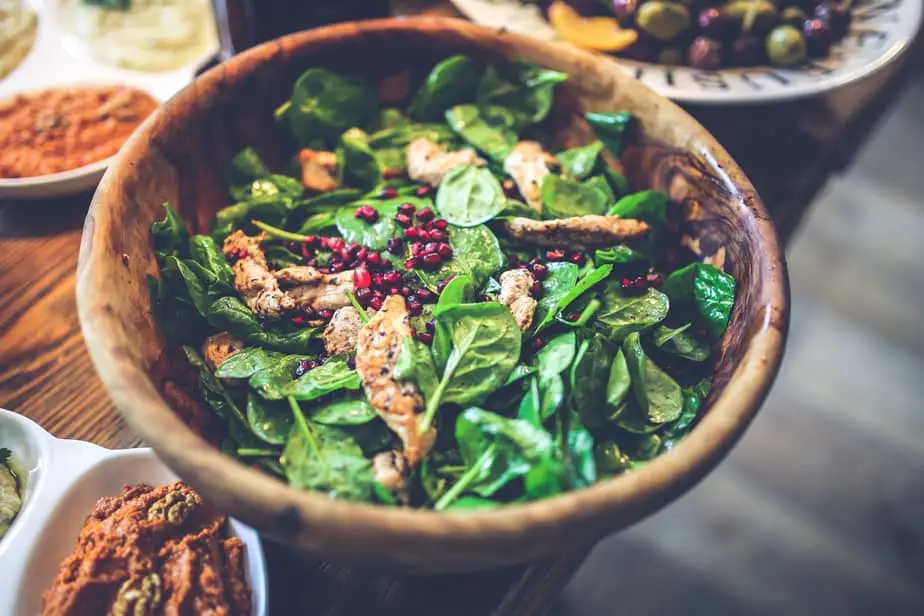
You need carbohydrates and fats to fuel your body for scuba diving. Carbs raise your blood sugar levels and give you energy for short, high-intensity exercises. Fats are used for low-to-moderate intensity exercises and are used up over a longer time frame. Thus, your diet in the days leading up to the diving trip will affect the intensity and number of dives you can do.
During surface intervals, it’s a good idea to eat some carbs to replenish your muscles’ glycogen stores (think of this as fuel for your muscle). Your muscles will use the glucose from the carbs as energy. Some examples of foods that are good for this are: bread, pasta, potatoes, oats, and brown rice.
In preparation for a full day of diving, you should increase your carb intake. For 1-7 days leading up to the dive, increase your carb and fat intake and eat more carbs the day of the dive. You should eat a simple meal 2-3 hours before the dive to fuel your body and give it some time to digest the meal so you don’t feel full and bloated.
Divers who are susceptible to cramping should eat foods rich in magnesium to their diet, or take a magnesium supplement. Cramps are dangerous to experience underwater. If you get cramps in your feet or calves, you’ll have to stop finning and stop and stretch the affected muscles, which can be painful and a waste of time underwater. Some foods high in magnesium are: nuts, bananas, spinach, and dark chocolate.
As for healthy sources of carbohydrates and fats, consider eating: fruits, vegetables, grains, dairy products, lean meat, eggs, avocados, and nuts. Eat a meal consisting of some carbs and fats before the dive, and eat some carbs between dives to refuel your muscles.
What you shouldn’t eat before scuba diving
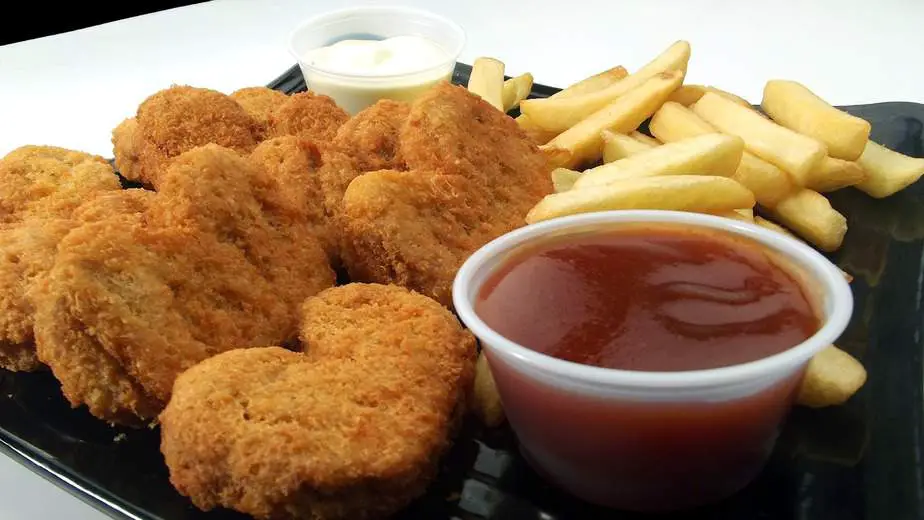
As we mentioned, you should avoid drinking alcohol and coffee. I understand you’re probably on vacation and want to enjoy a few shots, however it is seriously detrimental to your health if you plan to scuba dive. Alcohol puts you at risk of DCS, hypothermia, nitrogen narcosis, dehydration, and will affect your judgment while diving.
Most dive shops will not allow you to dive if you drank any alcoholic beverages within the last 8 hours. Some dive shops may even say you shouldn’t drink 24 hours before a dive. Thus, if you need to have a few beers, drink early enough before the day of the dive so that you will be completely sober for the dive. In fact, don’t drink if you plan on sleeping within the next 6-8 hours because alcohol can negatively affect your sleep quality.
You should make an effort not to eat any spicy, greasy, or sugary foods that could give you a stomach ache. If you have a lot of beans, well, you’re going to be farting a lot in your wetsuit. If you are diving in a new country and are not used to the local cuisine, you may want to first get used to it or eat some familiar meals before a dive.
The last thing you want is to have an upset stomach due to a reaction to spicy or oily foods, or a reaction to foreign bacterias, or even some kind of allergic reaction. If you’re already feeling unwell from the food, the swaying of the boat and the physical exertion of scuba diving isn’t going to make you feel any better.
While getting a stomach ache or passing gas isn’t particularly dangerous, it can seriously ruin your enjoyment of the dive. It’s not a pleasant experience to burp curry into your regulator. The biggest concern is if you feel the urge to vomit during the dive. Thankfully, the regulator is designed to expel liquids so it’s safe to vomit. However, when you’re feeling unwell, you may feel anxious, breathe irregularly, and ascend too quickly to get out of your situation.
In rare cases, divers have choked and asphyxiated underwater. In order to avoid this, stick to the foods detailed in the section above, don’t eat too large of a meal, and give yourself 2-3 hours to digest before a dive.
What to eat after diving
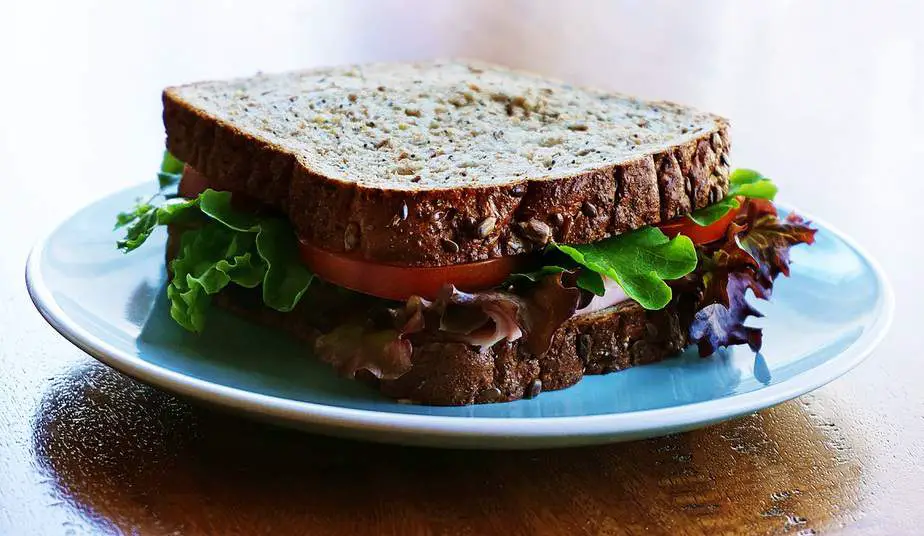
There are many things you shouldn’t do after scuba diving, and one of them is loading up on the junk food and slamming shots like there’s no tomorrow. I get it, you’re on vacation, however it’s going to affect your ability to scuba dive the next day.
After finishing a scuba dive, it’s normal to feel thirsty, tired, and hungry. Not surprising, considering you likely just expended 400-500 calories worth of energy. It’s time to replenish the fluids your body lost by drinking water and eating some carbs to refuel your muscles. For the rest of the day, continue eating a high carb diet to keep your energy levels high. Carbs aid in postexercise recovery and will give you the energy you need for more dives.
If you’re diving from a boat, most dive shops usually provide small snacks or meals between dives. If you’re unsure, ask them for confirmation – will they be providing snacks, and what kinds of foods will they give. You may want to know this if you have food allergies or are following a strict diet. Most boats will allow you to pack a small dry bag on board so you can bring some snacks aboard to eat.
Eating on a liveaboard
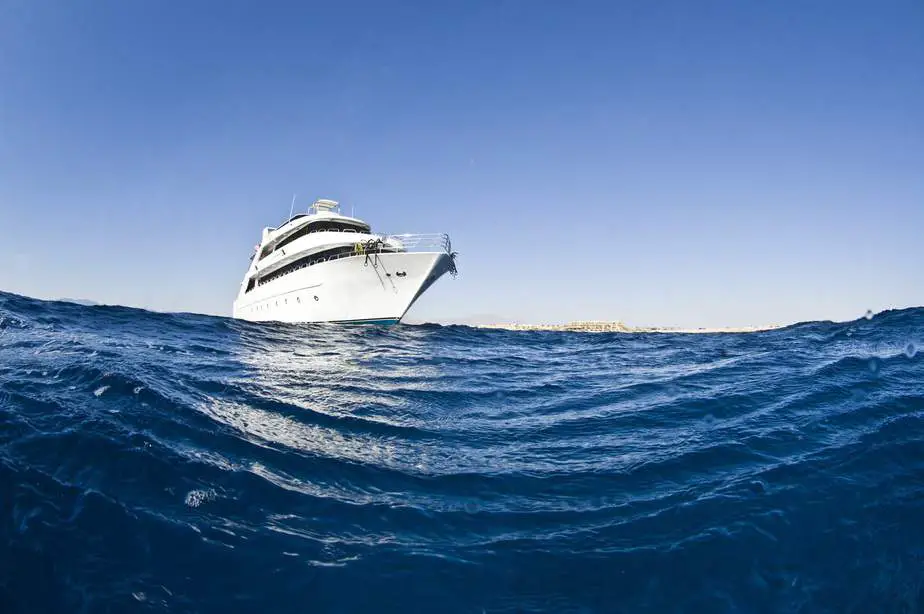
If you’ve never been on a liveaboard trip before, essentially it is a multi-day diving safari where you live aboard a ship with other divers and travel to exclusive diving sites and dive to your heart’s content. Since you’ll be diving so much, it’s important that you eat right to fuel your muscles for each dive. It’s not unusual for you to dive 3-4 times a day on a liveaboard, and this can easily tire you out.
As always, you want to be drinking plenty of water. When you’re on a liveaboard, you’ll be exposed to the sun more and depending on the area, the heat and humidity can cause you to dehydrate quickly. Eat more carbs and fats to keep your energy up during the trip. Aim to eat a balance of vegetables, fruits, and whole grains.
Before any strenuous physical activity, you can load up on carbohydrates in the days leading up to it. You’ll also need to replenish your electrolytes by eating fruits, vegetables, or having a sports drink.
If you want to drink alcohol, make sure to wait until after you’ve done your last dive of the day. Limit your alcohol intake to one or two servings of alcohol a night. Don’t drink within 8 hours of your next dive. If you drink too much alcohol the night before, you may not yet be able to safely dive the next morning.
The first dive of the day often starts very early in the morning, so it’s best to keep alcohol to a minimum. Depending on the liveaboard, alcohol may even be prohibited while others will serve alcohol or let you bring your own.
High-end liveaboards are the definition of luxurious. They will have their own restaurant onboard with a friendly crew that will cater to your needs. Since this service is designed for scuba divers by scuba divers, they know what foods are optimal for a scuba diver’s diet. Most liveaboards will provide a sample menu when you book so they can work around dietary conditions.
Parting words
Just like any other sport, scuba diving burns a lot of calories so you need to eat the right foods before and during a dive trip to keep your energy levels high. Another important factor is hydration; due to immersion diuresis and sweating, your body will lose a lot of fluids on a diving trip.
You must hydrate yourself frequently to avoid decompression sickness and nitrogen narcosis. If you’re worried about getting a stomach ache, we recommend staying away from new foods and only eating simple meals. Lastly, limit your alcohol intake because it can impair your movements, dehydrate you, and affect your judgment.

